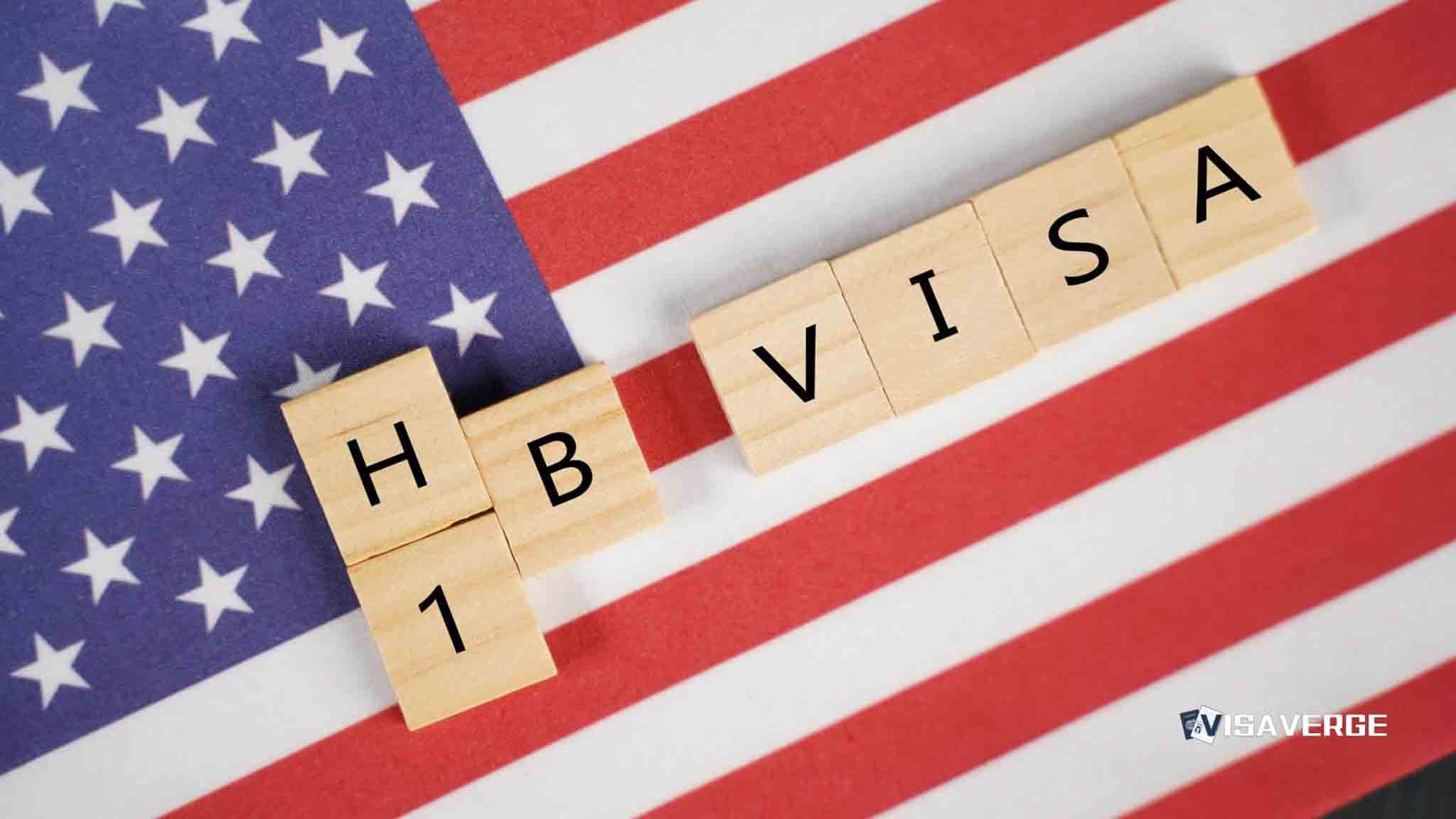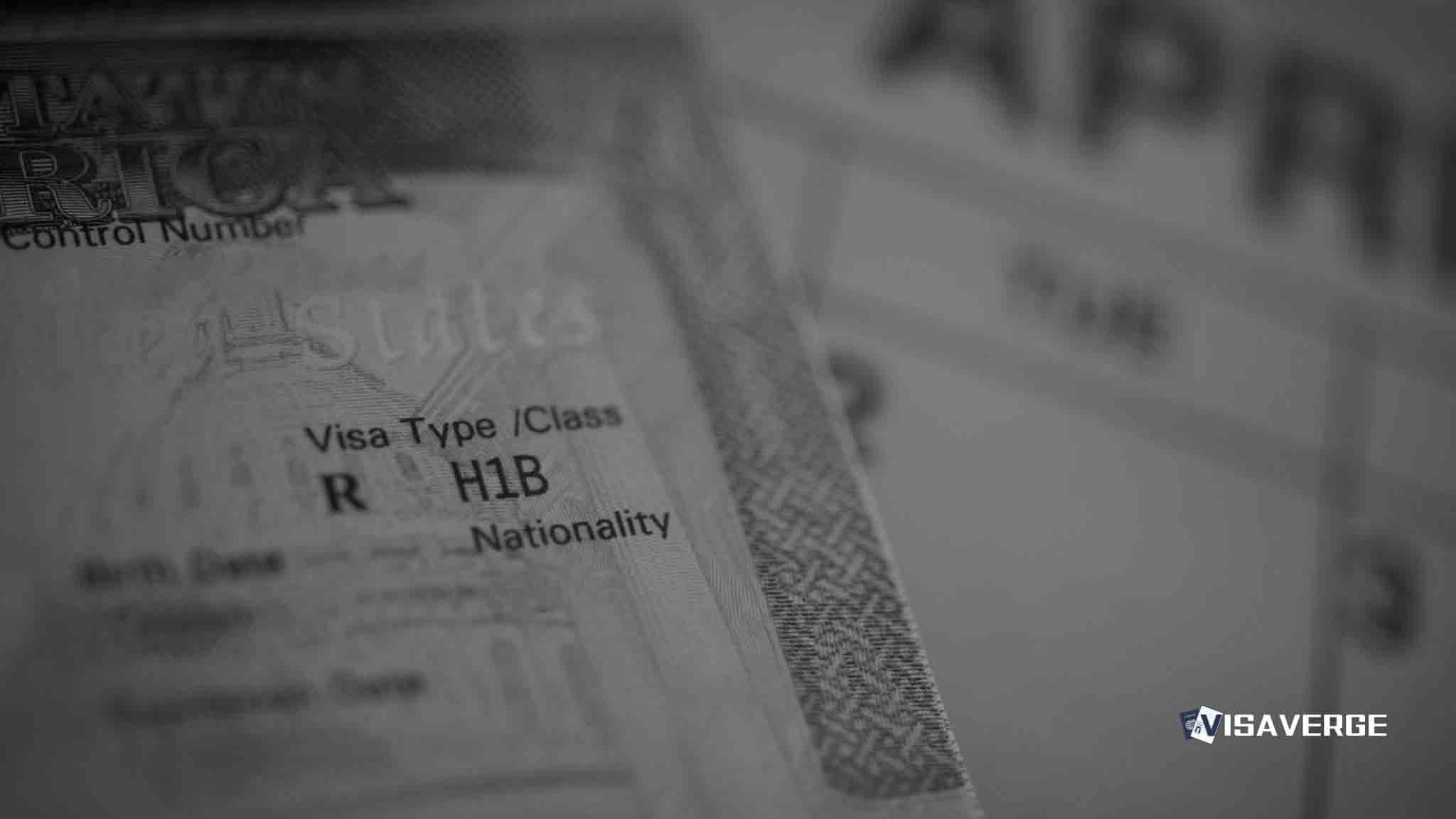Quick Glance:
- H-1B visa holders cannot vote in U.S. elections, as only citizens have that right under federal law.
- However, H-1B visa holders can engage in advocacy, volunteer work, and media creation to influence political discourse.
- Non-citizens may have voting rights in certain local elections, and pursuing U.S. citizenship is a pathway to voting eligibility. Are you an H-1B visa holder and wondering if you can have a say in U.S. elections? Many people who come to the United States on work visas, especially the H-1B, find themselves deeply involved in their communities and invested in the political landscape. As someone living, working, and paying taxes here, it’s natural to question whether you have a voice in governmental decisions that could affect your life. So, let’s dive deeper into what participation in U.S. elections means for H-1B visa holders.
First things first, let’s understand what an H-1B visa is. The H-1B is a nonimmigrant visa, which allows U.S. employers to temporarily employ foreign workers in specialty occupations. If you’re one of the many that hold this visa, you’re here to contribute your skills to the U.S. economy.
Now, onto the big question: Can H-1B visa holders participate in U.S. elections? Well, the answer, simply put, is no. Here’s why – only U.S. citizens have the right to vote in federal and state elections. This is not just a policy but a matter of federal law. As much as you might feel part of the fabric of American society, when it comes to voting, your hands are tied by the country’s legal boundaries.
However, while this might sound discouraging, it doesn’t mean that you’re entirely without influence. Even without the right to vote, there are still several ways you can engage with the political scene.
Advocacy and Community Involvement
One way to make your voice heard is by getting involved in advocacy groups or community organizations that share your views and priorities. Such groups work to influence policy and public opinion—areas where you can contribute without needing the right to vote.
Volunteer Work
Volunteering for a political campaign or cause can be incredibly impactful. You’re allowed to support political candidates or parties by volunteering your time and skills, as long as you don’t donate money.

Staying Informed
Information is a powerful tool. Stay updated on policies and laws that concern immigration and workforce regulations. This knowledge not only benefits you personally and professionally but also enables you to inform others who do have the right to vote.
Media and Content Creation
Given the massive reach of social media and blogging, creating content that discusses political and social issues can influence opinions. You can write articles, create videos, or use any medium you’re comfortable with to share your perspective.
Local Civic Participation
While federal and state elections are off-limits, some local elections may allow non-citizens to vote on matters such as school boards and community services—though this is rare and location-dependent.
The Path to Citizenship
It’s also worth mentioning that many non-citizens find a pathway to U.S. citizenship, which ultimately gives them the right to vote. Whether through employment-based routes, family sponsorship, the Diversity Immigrant Visa Program, or other avenues, for those who choose it, citizenship becomes a possibility.
Now, it’s critical to be mindful of the boundaries set by U.S. election law. Participation that crosses into illegal activity can have dire consequences, including deportation and bars on reentering the United States. Always adhere to the laws and regulations that pertain to your visa status. U.S. Citizenship and Immigration Services is an authoritative resource for information on these matters.
So while H-1B visa holders cannot directly cast a ballot in U.S. elections, there are numerous ways to engage and contribute to the fabric of American political life without overstepping legal limitations. After all, democracy is about more than just voting—it’s about participation, expression, and finding common ground where every voice can contribute to the grand tapestry of society.
Remember, each person’s situation is unique, so it’s best to consult with an immigration lawyer or a legal expert to discuss your particular circumstances and any activities you plan to engage in.
By being proactive and resourceful, you can still play a meaningful role in shaping the future of the community and country you are living in. Engage, participate, and help make a positive difference.
Well, my friend, while H-1B visa holders can’t vote in U.S. elections, there’s still plenty of ways to make your voice heard! Join advocacy groups, volunteer for campaigns, stay informed, create awesome content, get involved in local elections, and who knows, maybe even embrace the path to U.S. citizenship. Remember, democracy is about participation! If you want more tips and info, head over to visaverge.com. Cheers to being an engaged member of society!
FAQ’s to know:
FAQ 1: Can H-1B visa holders participate in U.S. elections?
No, H-1B visa holders cannot participate in U.S. elections. Only U.S. citizens have the right to vote in federal and state elections. This is a matter of federal law, and visa holders are bound by these legal boundaries.
FAQ 2: How can H-1B visa holders engage with the political scene without voting?
H-1B visa holders can engage with the political scene in several ways. They can get involved in advocacy groups or community organizations to influence policy and public opinion. Volunteering for political campaigns or causes is also impactful. Staying informed about policies and laws, and creating content to share their perspective on social and political issues, are other ways to make their voices heard. Some local elections may also allow non-citizens to vote on specific matters.
FAQ 3: Can H-1B visa holders become U.S. citizens and gain the right to vote?
Yes, many non-citizens holding H-1B visas find pathways to U.S. citizenship. Through employment-based routes, family sponsorship, the Diversity Immigrant Visa Program, or other avenues, individuals can pursue citizenship, which grants them the right to vote. However, it’s important to consult with immigration lawyers or legal experts to understand the specific process and requirements based on individual circumstances.
What did you learn? Answer below to know:
- Can H-1B visa holders vote in U.S. elections?
a) True b) False
- What are some ways H-1B visa holders can engage with the political scene?
a) Donating money to political campaigns b) Volunteering for a political campaign c) Casting a ballot in federal elections d) Running for political office
- What is an H-1B visa?
a) A visa for U.S. citizens to work in other countries b) A visa for foreign workers to temporarily work in the U.S. in specialty occupations c) A visa for international students studying in the U.S. d) A visa for foreign workers seeking permanent residency in the U.S.
Did you Know?
Did You Know?
- Immigration and Economic Growth: Immigration has played a significant role in driving economic growth throughout history. According to a study by the National Academy of Sciences, immigrants have positively contributed to the U.S. economy by increasing innovation, productivity, and job opportunities for both native-born workers and fellow immigrants.
-
Diversity Immigrant Visa Program: The Diversity Immigrant Visa Program, also known as the Green Card Lottery, is a program that provides a pathway to permanent residency in the United States for individuals from countries with low rates of immigration to the U.S. Each year, approximately 50,000 diversity visas are made available through a random lottery selection process.
-
Refugee Admissions: The United States has historically been a top destination for refugees fleeing persecution and violence in their home countries. In 2020, the U.S. admitted over 22,000 refugees from various regions around the world, with the highest number coming from countries like the Democratic Republic of the Congo, Myanmar, and Ukraine.
-
Temporary Protected Status (TPS): The Temporary Protected Status program provides temporary legal status to individuals from designated countries experiencing ongoing armed conflicts, natural disasters, or other extraordinary conditions. It allows them to live and work legally in the United States until the conditions in their home countries improve.
-
Family-Based Immigration: Family-based immigration allows U.S. citizens and lawful permanent residents to sponsor their close relatives for immigration to the United States. This path to immigration aims to reunite families and is one of the primary ways individuals obtain legal permanent residency, also known as a Green Card.
-
Migration and Remittances: Many immigrants send money back to their home countries, contributing to the economies of their countries of origin. In 2020, global remittance flows to low and middle-income countries reached a record high of over $540 billion, with the largest recipients being India, China, Mexico, and the Philippines.
-
Undocumented Immigration: The number of undocumented immigrants living in the United States has remained relatively stable in recent years. According to the Pew Research Center, as of 2017, approximately 10.5 million undocumented immigrants were living in the United States, accounting for about 3% of the total population.
-
Citizenship Test: The U.S. citizenship test, which applicants must pass to become naturalized U.S. citizens, consists of a civics portion that assesses their knowledge of U.S. history, government, and rights and responsibilities of citizens. The test includes questions about the Constitution, important historical events, and key figures in American history.
-
Brain Drain vs. Brain Gain: Brain drain refers to the emigration of highly skilled individuals from their home countries to other countries, while brain gain refers to the positive effects of immigration, including the influx of highly educated and skilled immigrants who contribute to the host country’s economy and innovation.
-
Language Diversity: The United States is known for its linguistic diversity. While English is the most widely spoken language, many other languages are spoken across the country, including Spanish, Chinese, Tagalog, Vietnamese, Arabic, and many others. This linguistic diversity reflects the rich cultural heritage of the immigrant populations that have shaped the nation.
What did you learn?
1. Can H-1B visa holders vote in U.S. elections?
Answer: b) False
2. What are some ways H-1B visa holders can engage with the political scene?
Answer: b) Volunteering for a political campaign
3. What is an H-1B visa?
Answer: b) A visa for foreign workers to temporarily work in the U.S. in specialty occupations
Learn Today: Key Terms Explained
Glossary or Definitions:
-
H-1B visa: A nonimmigrant visa that allows U.S. employers to temporarily employ foreign workers in specialty occupations.
-
Advocacy: The act of supporting or promoting a particular cause or viewpoint, often with the intention of influencing policy or public opinion.
-
Community organizations: Groups or associations that are formed by members of a community to address specific needs or interests within that community.
-
Volunteer work: Performing unpaid services for a political campaign or cause to support a political candidate or party without donating money.
-
Political campaign: Organized efforts by political candidates or parties to promote their ideas, persuade voters, and win elections.
-
Staying informed: The act of keeping updated on policies, laws, and current events related to immigration and workforce regulations.
-
Media and content creation: Producing and sharing information or creative material through various mediums, such as articles, videos, or social media, to express one’s perspective on political and social issues.
-
Local civic participation: Involvement in local elections, such as voting on matters like school boards and community services, which may allow non-citizens to participate, depending on the location.
-
Path to Citizenship: The process through which non-citizens can obtain U.S. citizenship by meeting certain eligibility requirements, such as employment-based routes, family sponsorship, or participating in programs like the Diversity Immigrant Visa Program.
-
U.S. Citizenship and Immigration Services (USCIS): A government agency responsible for overseeing immigration and naturalization services, including visa processing, citizenship applications, and immigration benefits.
-
Engagement: Active participation or involvement in activities related to politics, community, or society.
-
Democracy: A system of government in which power is vested in the people, who have the right to vote, express their opinions, and participate in decision-making processes.
-
Immigration lawyer: A legal professional specializing in immigration law who provides guidance and support to individuals or organizations navigating the immigration process.
-
Legal limitations: The boundaries set by laws and regulations that determine the rights, privileges, and responsibilities of individuals based on their visa status and citizenship status.
-
Deportation: The process of forcibly removing a non-citizen from a country due to a violation of immigration laws or failure to maintain legal immigration status.
-
Bars on reentering: Restrictions or prohibitions imposed on an individual’s ability to reenter a country after being removed or deported.
-
Nonimmigrant visa: A temporary visa granted to individuals who want to visit, work, study, or engage in other specific activities in a country for a limited period.
-
Specialty occupations: Professional occupations that generally require a specialized body of knowledge, such as engineers, computer programmers, or scientists, which are eligible for H-1B visa sponsorship in the United States.
-
U.S. citizens: Individuals who are legally recognized as citizens of the United States through birthright, naturalization, or other means.
-
Federal law: Laws established at the national level that apply uniformly across all states in the United States.








